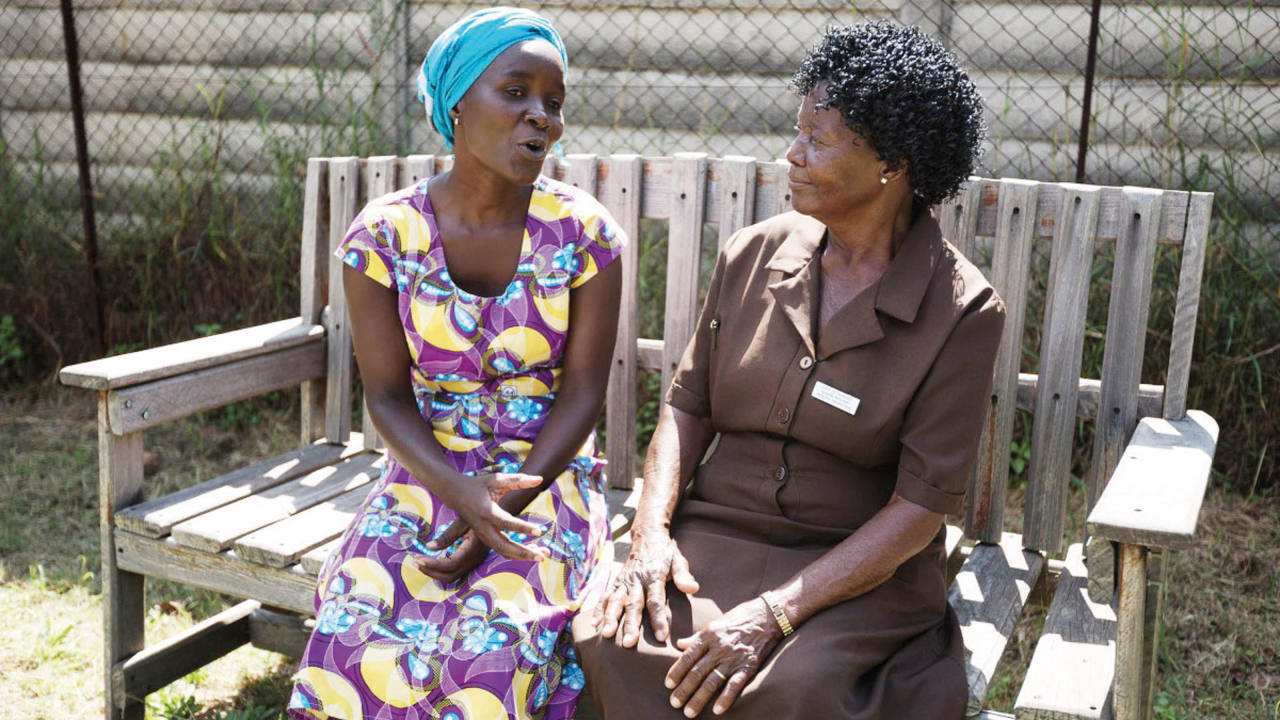Mental health conditions range from mild distress to severe, debilitating illness. Over time, with the right support and treatment, many people make a full recovery. Others need help to live with their condition long term.
Psychological (talking) therapies can often help. Through conversation, therapists help people understand how their thoughts can lead to unhelpful emotions and behaviours. They also suggest self-care strategies such as avoiding alcohol, eating healthily and relaxation techniques.
Medication such as antidepressants and mood stabilisers, as prescribed by a psychiatrist, can also be beneficial in some circumstances.
Anxiety
Anxiety is when worry or fear becomes overwhelming and difficult to control. Symptoms may include restlessness, trouble sleeping, lack of concentration, nausea, shortness of breath, dizziness and a fast heartbeat. Anxiety disorders include:
- Post-traumatic stress disorder: usually caused by a frightening event that may be re-lived in nightmares or vivid memories. People affected by this disorder may find themselves becoming more angry and upset than usual.
- Phobia: an overwhelming fear of an object, place, situation or animal.
- Obsessive compulsive disorder: uninvited negative thoughts that cause the person to perform repetitive behaviours in an attempt to reduce their anxiety.
Depression
Depression is when feelings of sadness last for weeks or months. People with depression struggle to make themselves feel better, even by doing things that usually improve their mood.
Other symptoms may include: loss of interest in everyday activities; irritability; feelings of helplessness; tiredness; difficulty sleeping; loss of appetite; aches and pains. Severe depression can cause people to harm themselves or have suicidal thoughts.
There are many different types of depression including:
- Postnatal depression: low moods, exhaustion and feelings of helplessness after having a baby.
- Bipolar disorder: episodes of depression followed by periods of intense energy and activity.
Schizophrenia
This is a severe long-term condition that can make it difficult to distinguish thoughts and ideas from reality.
Symptoms may include hallucinations (hearing or seeing things that do not exist outside of the mind), muddled thoughts, loss of interest in everyday activities, avoiding people and neglecting personal hygiene.
Panic attack
A panic attack is a sudden episode of intense fear that triggers severe physical reactions such as a fast heartbeat, feeling faint, nausea, chest pain and shortness of breath.
Panic attacks can be very frightening: the person might think they are losing control, having a heart attack or even dying.
How to help
If someone is having a panic attack, stay calm. Reassure them that you are there and let them know that it will soon pass and they are safe.
Ask them if they would like to move to a different place and remind them to keep breathing.
Afterwards, they may or may not want to talk about it. Take the lead from them and respond with empathy and compassion.
Panic attacks are not dangerous and will usually pass in less than 20 minutes. However, the person may need emergency help if:
- chest pain moves to their arms or shoulders
- symptoms last for longer than 20 minutes and get worse
- shortness of breath does not improve.
To find out more about mental health conditions and different types of treatment, visit www.mind.org.uk/information-support









